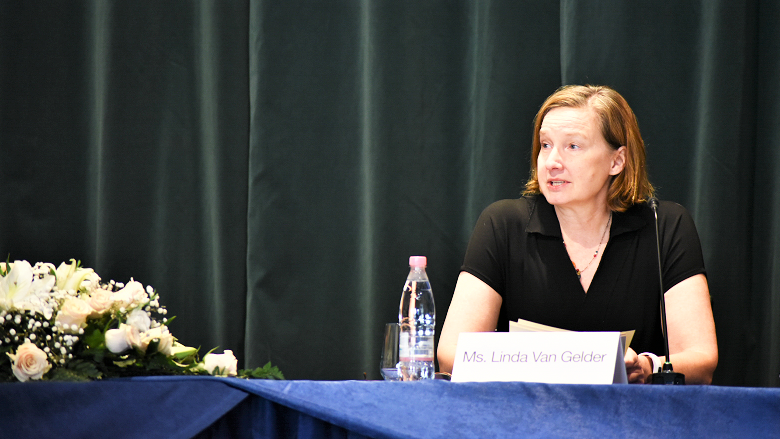Your Excellency, Madame Deputy Prime Minister, Distinguished Guests,
Thank you for the opportunity to join you today at this conference on how to advance gender equality in the Western Balkans to achieve higher economic and social progress. The World Bank’s 2012 World Development Report starts by saying that “Gender equality is smart economics”.
No country can reach its potential with a large share of its population excluded from actively and productively participating in the economy. In the Western Balkans, gender gaps in education are small, which is good news. In fact, in many countries in the region women attain higher levels of education than men.
However, the benefits of that investment do not translate into women’s full participation in labor markets and entrepreneurship. This means that women, their families, and society at large lose out. We estimate that the Western Balkans region loses on average 18 percent of GDP every year as a result of gender inequality in the labor market.
The focus of this conference, on the national institutions to support Gender Equality, is of particular importance because it represents your countries’ commitment to act upon the promise of equal opportunities for women through institutional coordination, monitoring, and advocacy.
In the Western Balkans, stronger and better-resourced efforts are needed to address gender inequalities across all their dimensions, including in access to job opportunities and ownership of productive assets like land. Jobs and assets are key levers of change for women and their communities, and fundamental drivers of economic growth and prosperity. In the Western Balkans, the World Bank Group, jointly with other development partners, has been working to identify and support concrete policy actions that can generate progress in these areas, and we look forward to working with all of you to advance this agenda.
But there is an additional policy needed to ensure that progress is substantial and sustainable. Building a strong evidence base and developing solid monitoring and evaluation systems is critical and requires strengthening the institutional framework on gender equality, so that efforts of the gender champions in each Government permeate to other Ministries and to the subnational level.
The more we know, the more effective policies can be. At the Meeting of the Western Balkans Regional Partners on Gender Equality that took place in Vienna last May, all participating countries formally committed to strengthening institutional arrangements to promote gender equality, both at the country and regional level. Participants acknowledged the necessity to have a strong institutional mechanism to regulate and oversee the planning and reporting on gender equality commitments. Importantly, countries committed to (i) enhance the efficiency and accountability of existing gender equality mechanisms; and (ii) improve the regional coordination and monitoring around gender equality.
Indeed, there is much to be gained from regional coordination, including sharing experiences; supporting policy implementation; and monitoring progress. Moreover, a regional agenda on gender equality complements well the efforts on regional economic integration and aspirations for EU accession.
In the Western Balkans, you have shown strong commitment to the gender equality agenda, including working together to monitor and evaluate efforts to advance gender equality in access to economic opportunities. Sustained efforts in this area will be needed to attain the results that we all want to see: robust, more inclusive, and sustainable growth with jobs.
Some of the bottlenecks are already identified, and we can use today as an opportunity to move this agenda forward. Together with UN Women and other development partners, the World Bank will continue working with each of you on these issues. Much has been and continues to be accomplished at the country level. But progress can be faster and the impact higher by tackling these issues collectively at the regional level.
Amartya Sen, the economist-philosopher and Nobel Prize Laureate, said that poverty leads to an intolerable waste of talent. The same can be said for gender inequality.
Thank you and I look forward to today’s discussions.

